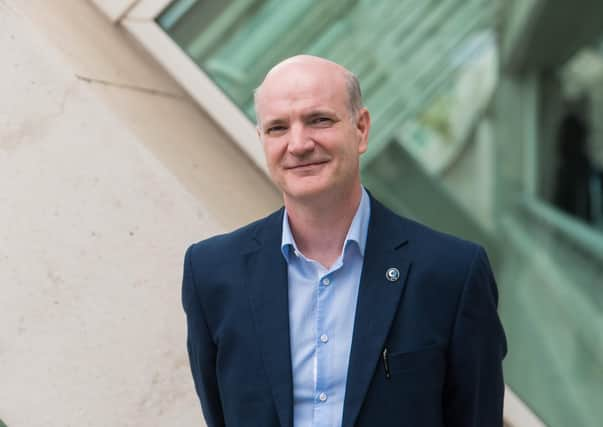Sheffield researchers discover simple jab could avoid repeat hip ops


More than half of repeat hip replacement operations could be prevented with a drug already successfully used to treat osteoporosis.
An estimated 8,500 hip revision procedures are conducted in England, Wales and Northern Ireland each year at a large cost to the NHS, with repeat procedures also carrying an increased risk of infection and other complications compared to first time surgery.
Advertisement
Hide AdAdvertisement
Hide AdThe leading reason for joint reoperation is osteolysis – a disease that eats away at bone tissue causing it to weaken and dissolve. The disease occurs after joint replacement surgery when tiny particles wear off from the implant causing the body’s immune system to attack the already weakened bone around the implant. This causes the artificial joint to loosen, causing pain and eventually requiring revision surgery.
The pioneering study, led by Professor Mark Wilkinson from the University of Sheffield’s Department of Oncology and Metabolism in partnership with Sheffield Teaching Hospitals NHS Foundation Trust, found a drug already used to treat osteoporosis, called denosumab, could help to protect the bone from being attacked and prevent the need for some repeat hip replacement operations.
“For decades scientists have been looking for a therapy that will help to protect vulnerable areas of bone and prevent revision surgery which not only has huge cost implications for the NHS, but also causes pain and reduces mobility for patients,” said Professor Wilkinson. “A primary hip replacement costs around £6,000. However, revision replacements can cost the NHS three times as much, at approximately £18,000.”
Edward Whittle, 80, from Sheffield had two revision hip operations due to osteolysis, believes the study’s findings could make a difference to patients like him in the future.
Advertisement
Hide AdAdvertisement
Hide Ad“I had my first hip replacement around 10 years ago, however the second replacement surgery was a lot different to the first one and it took me a lot longer to get back on my feet,” said Edward.“I was in a great deal of pain for around 12 months and I took a lot of looking after.
“I think it would be absolutely fantastic if a simple injection could help to prevent people from having to undergo repeat replacements. If this treatment was available after my first replacement it would have made such a big difference to me.”
The findings, published this week in the journal The Lancet Rheumatology, show that the treatment kills around 90 per cent of the cells responsible for bone loss in patients due to have revision hip surgery who were treated with denosumab.
A total of 22 patients took part in the Phase 2 clinical trial sponsored by Sheffield Teaching Hospitals and funded by Amgen, Inc. A bigger clinical trial is now planned which could revolutionise hip replacements.
Comment Guidelines
National World encourages reader discussion on our stories. User feedback, insights and back-and-forth exchanges add a rich layer of context to reporting. Please review our Community Guidelines before commenting.